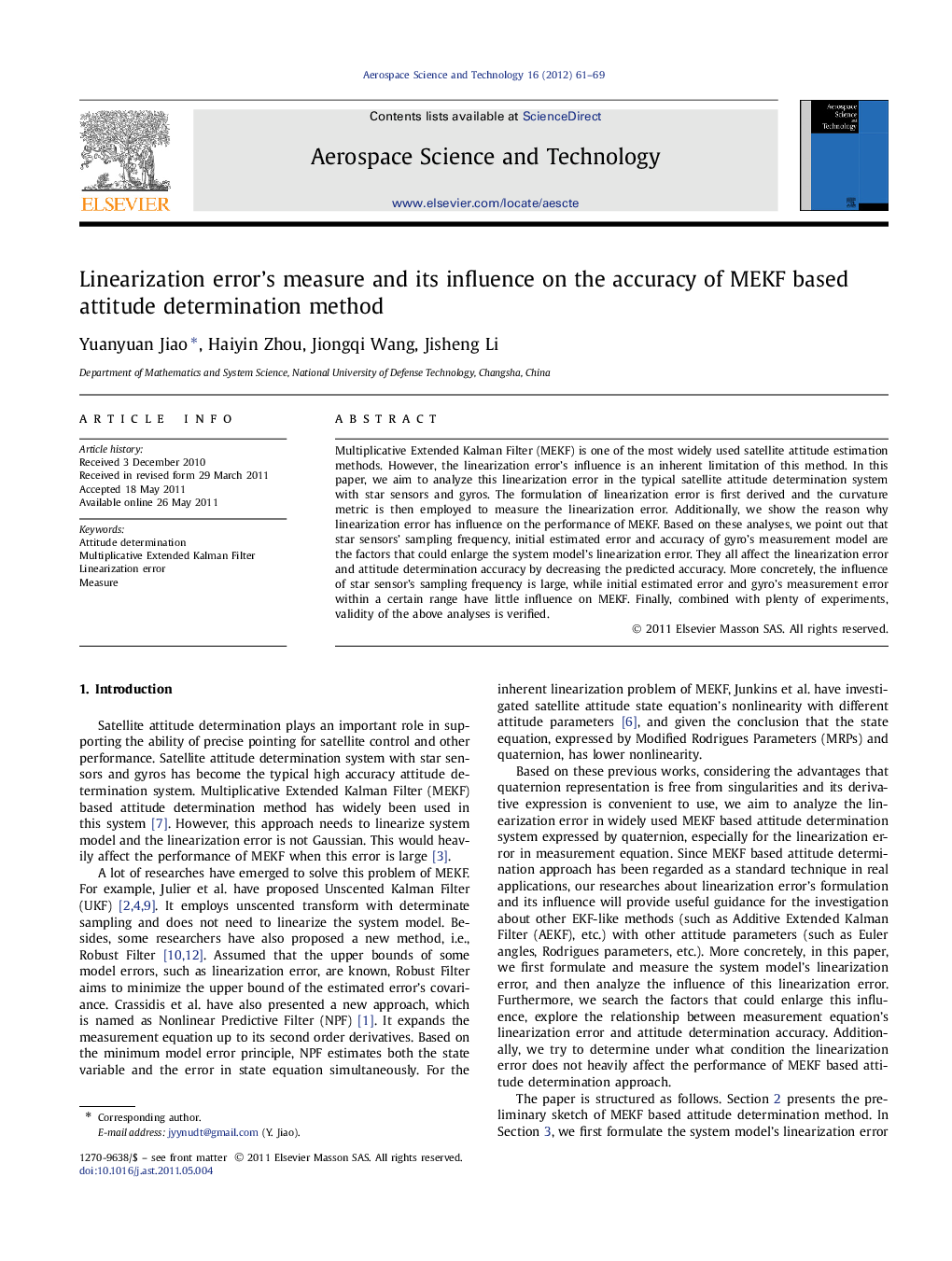| Article ID | Journal | Published Year | Pages | File Type |
|---|---|---|---|---|
| 1718503 | Aerospace Science and Technology | 2012 | 9 Pages |
Multiplicative Extended Kalman Filter (MEKF) is one of the most widely used satellite attitude estimation methods. However, the linearization errorʼs influence is an inherent limitation of this method. In this paper, we aim to analyze this linearization error in the typical satellite attitude determination system with star sensors and gyros. The formulation of linearization error is first derived and the curvature metric is then employed to measure the linearization error. Additionally, we show the reason why linearization error has influence on the performance of MEKF. Based on these analyses, we point out that star sensorsʼ sampling frequency, initial estimated error and accuracy of gyroʼs measurement model are the factors that could enlarge the system modelʼs linearization error. They all affect the linearization error and attitude determination accuracy by decreasing the predicted accuracy. More concretely, the influence of star sensorʼs sampling frequency is large, while initial estimated error and gyroʼs measurement error within a certain range have little influence on MEKF. Finally, combined with plenty of experiments, validity of the above analyses is verified.
